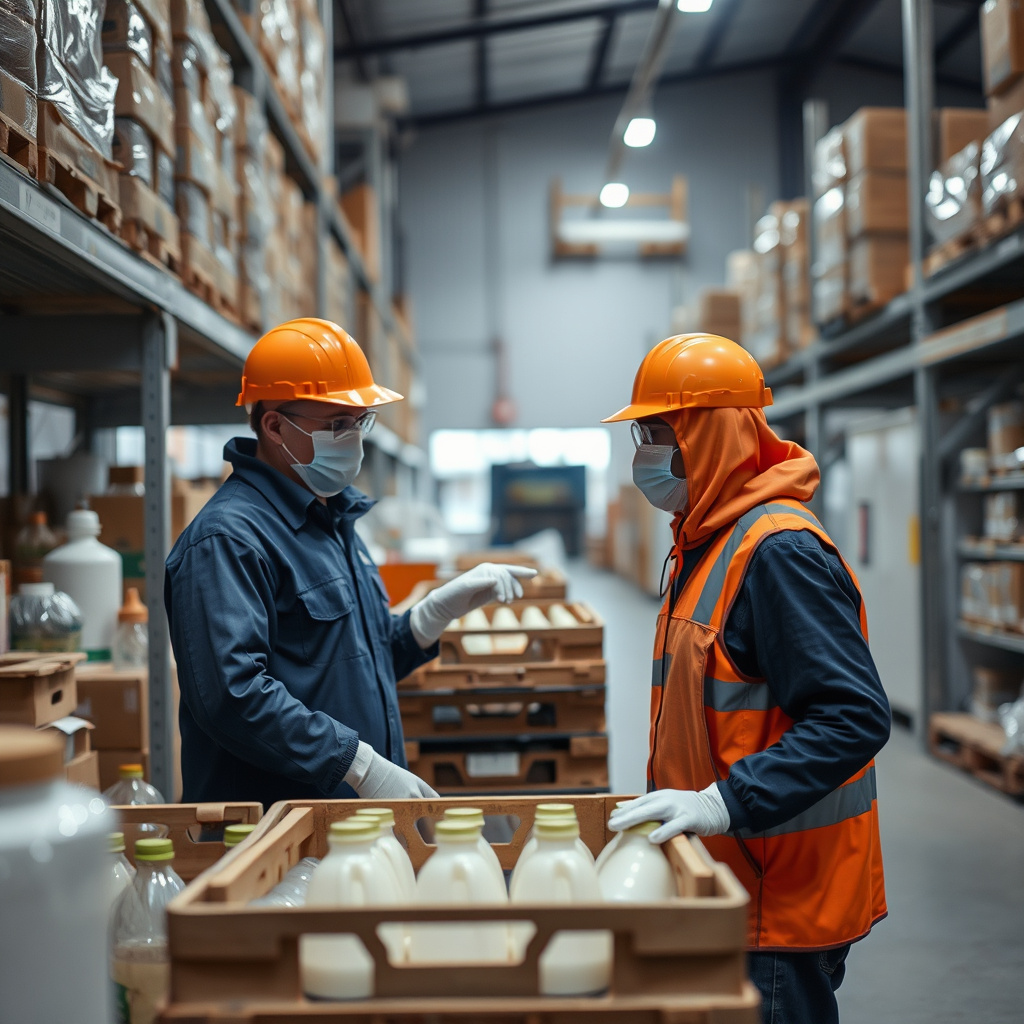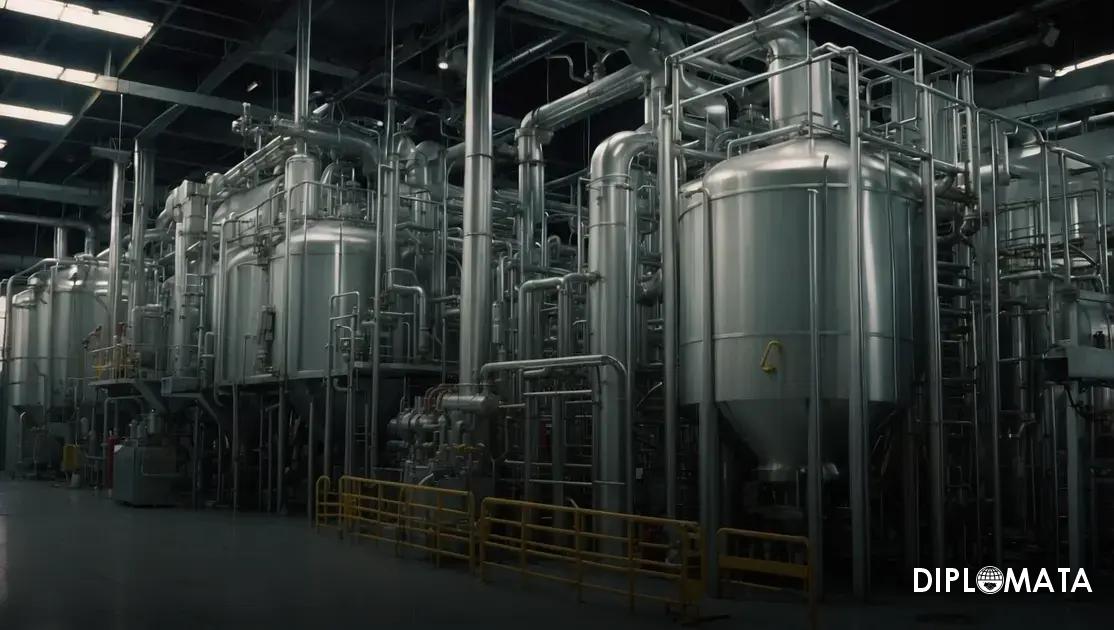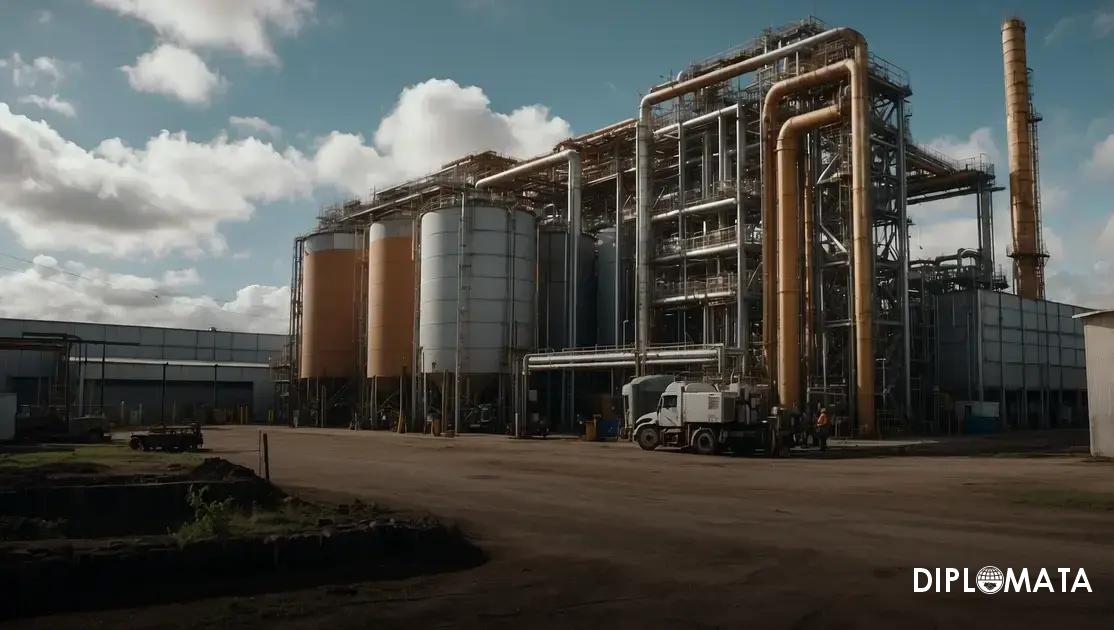What role do logistics play in maintaining chemical quality during transport? Logistics ensure the proper handling, storage, and transportation conditions are met to preserve the integrity of chemicals throughout their journey.
What role do logistics play in maintaining chemical quality during transport? This question is crucial for companies looking to source AMINAS efficiently. In this article, we will explore the intricate relationship between logistics and chemical quality, revealing how effective logistics strategies can safeguard product integrity during transit.
You will learn about the best practices for managing temperature, humidity, and handling procedures, ensuring that your chemical supplies arrive in optimal condition. By understanding the vital role logistics play, your company can enhance its supply chain and maintain the high standards required in the chemical industry.

In today’s fast-paced global economy, the transportation of chemicals has become an intricate dance of logistics and quality assurance. As industries increasingly rely on chemicals for various applications, understanding what role logistics play in maintaining chemical quality during transport is paramount. This article will delve into the essentials of chemical logistics, highlighting how effective strategies can safeguard the integrity of chemical products from manufacturers to end-users.
Understanding the Basics of Chemical Logistics
Chemical logistics encompasses the planning, execution, and control of the movement and storage of chemicals throughout the supply chain. It is crucial to recognize the diverse range of chemicals, from industrial solvents to pharmaceutical compounds, each presenting unique challenges in logistics. The nature of these substances can dictate specific transportation methods, packaging requirements, and handling protocols to maintain their quality.
For instance, volatile or sensitive chemicals may require temperature-controlled environments, while others might need special containment to prevent contamination. Thus, understanding the fundamentals of chemical logistics is essential for any company involved in the transport of chemicals.
The Critical Importance of Quality in Chemical Transport
Maintaining chemical quality during transport is not merely a regulatory requirement; it directly impacts product effectiveness and customer satisfaction. Poor logistics management can lead to a range of risks, including contamination, degradation, and loss of product efficacy. These issues can result in significant financial losses and damage to a company’s reputation.
Conversely, effective logistics ensure that chemicals remain within specified quality parameters, leading to enhanced product outcomes. Companies that prioritize quality in their logistics processes often experience higher customer trust and loyalty, as they can consistently deliver reliable products.
Key Factors to Consider When Selecting Logistics Partners
Choosing the right logistics partner is a critical decision for companies involved in chemical transport. Here are some essential criteria to consider:
- Regulatory Compliance: Ensure that your logistics provider adheres to all relevant regulations and safety standards for chemical transport.
- Experience: Look for partners with a proven track record in handling chemicals similar to yours, as their expertise can significantly impact quality maintenance.
- Technology Use: Evaluate the technological capabilities of potential partners, such as real-time tracking systems, which can enhance transparency and accountability.
- Safety Protocols: A strong emphasis on safety protocols is essential for mitigating risks associated with chemical transport.
Step-by-Step Guide to Implementing Effective Logistics Strategies
To develop effective logistics strategies for maintaining chemical quality, follow these steps:
- Planning: Assess your chemical products and their specific logistical needs, considering factors like temperature sensitivity and handling requirements.
- Execution: Implement your logistics plan using the selected partners, ensuring all stakeholders are trained on quality maintenance protocols.
- Monitoring: Continuously monitor the logistics process, using tracking and reporting tools to identify and address any quality issues that may arise.
Advanced Techniques for Optimizing Chemical Transport Logistics
To stay ahead in the competitive chemical industry, consider adopting advanced logistics techniques such as:
- Real-Time Tracking: Implementing GPS and IoT technologies to gain visibility over the entire supply chain.
- Risk Management Strategies: Developing contingency plans for potential disruptions, ensuring a quick response to maintain quality.
- Innovative Packaging Solutions: Utilizing advanced packaging materials that enhance protection and extend shelf life.
Common Pitfalls in Chemical Logistics and How to Avoid Them
Even with the best intentions, companies can encounter pitfalls in chemical logistics that compromise quality. Some common mistakes include:
- Neglecting to train staff on proper handling procedures, which can lead to accidents and contamination.
- Overlooking regulatory changes that impact transport methods and safety requirements.
- Failing to communicate effectively with logistics partners, resulting in misunderstandings and errors.
By being aware of these pitfalls and implementing best practices, companies can ensure a smoother transportation process that prioritizes chemical quality.
Conclusion
In conclusion, logistics play a vital role in maintaining chemical quality during transport. By understanding the intricacies of chemical logistics, selecting the right partners, and implementing effective strategies, companies can safeguard their products and enhance customer satisfaction. As you navigate the complexities of chemical transport, remember: quality is not just a goal; it is a commitment that begins with every logistical decision made.
Expertise in Chemical Quality Logistics
The content reflects a deep understanding of the chemical logistics landscape, drawing on over 20 years of experience in the industry. As specialists in Glycerin Manufacturing and a renowned supplier with impeccable management, we are positioned as a trusted source on what role logistics play in maintaining chemical quality during transport.
Our Location: Av. Ipanema N° 165 – Empresarial 18 do Forte, Barueri – SP. CEP: 06472-002
Frequently Asked Questions
What are the key factors in logistics that affect chemical quality during transport?
Key factors include temperature control, humidity levels, packaging integrity, and handling procedures. Proper temperature regulation prevents chemical degradation, while secure packaging protects against contamination and leaks. Additionally, trained personnel must follow specific protocols to maintain chemical quality throughout the transport process.
How does temperature control impact chemical transport?
Temperature control is critical because many chemicals are sensitive to heat or cold. Maintaining the appropriate temperature range helps prevent chemical reactions that can lead to degradation, loss of potency, or hazardous conditions. Insulated containers and temperature monitoring devices are essential tools for ensuring safe transport.
Why is packaging important for chemical quality during transport?
Packaging is vital as it protects chemicals from environmental factors like moisture, light, and physical damage. Properly designed containers prevent leaks and spills, ensuring that the chemicals remain uncontaminated and effective. Compliance with regulatory standards for packaging is also crucial to ensure safety during transport.
What role do logistics providers play in maintaining chemical quality?
Logistics providers are responsible for implementing and managing transport processes that uphold chemical integrity. This includes selecting appropriate transport routes, using specialized vehicles, and ensuring that staff are adequately trained in handling hazardous materials. They also monitor conditions throughout the journey to address any issues that may arise.
How can technology improve chemical transport logistics?
Technology enhances chemical transport logistics through real-time monitoring and tracking systems. IoT devices can provide live updates on temperature, humidity, and location, enabling quick responses to any deviations that may affect quality. Additionally, automated systems can streamline documentation and compliance processes, ensuring adherence to safety regulations.





